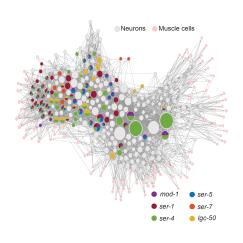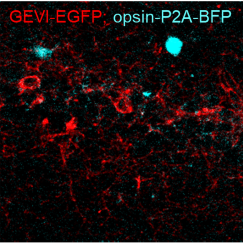There is a paradox in the brain’s role as a memory making organ: It has to be flexible, or “plastic,” enough to incorporate new information yet stable enough to keep the information it stores enduringly available. With a new Searle Scholar Award, MIT neuroscientist Linlin Fan will launch a study to determine how the neuromodulatory chemical serotonin may help the brain overcome the challenge.
The Searle Scholars program has supported high-risk, high reward research among early career faculty members in the biomedical sciences and chemistry. This year the program chose 15 scholars including Fan, Assistant Professor in The Picower Institute for Learning and Memory and the Department of Brain and Cognitive Sciences, to receive a total of $300,000 over three years in flexible funding for their work.
"We are interested in studying brain-state-dependent plasticity rules, and serotonin can powerfully modulate brain states,” Fan said.
Signs of serotonin’s influence on memory encoding have been hard to measure in mice with enough precision to study and establish as a causal influence, especially during a live behavior like navigating and learning a new space. But Fan’s lab specializes in advanced optical techniques that can simultaneously use light both to finely control and sensitively measure the subtleties of electrical and neuromodulatory chemical activity that govern neuronal plasticity. In a study she co-led last year, for example, Fan and her collaborators used her all-optical physiology methods and aa technique for tracking an endocannabinoid neuromodulator to understand how “place cell” neurons in the hippocampus squelched an inhibitory signal from another neuron when it was time to refine a memory of a location.
Among the notable aspects of the 2024 study was that the memory mechanism they characterized involving endocannabinoid receptors could potentially be disrupted by cannabinoid drugs such as marijuana. In the new study, Fan plans to examine how the serotonin-based plasticity rules at play might be affected by psychedelic drugs that act on serotonin systems in the brain.
Fan said she is honored to have the Searle Scholars program’s support, which is funded through the Searle Funds at The Chicago Community Trust and administered by Kinship Foundation.
"I am very grateful for the support from the Kinship Foundation, and I am appreciative to be selected as a Searle Scholar among so many great scientists," Fan said.



